
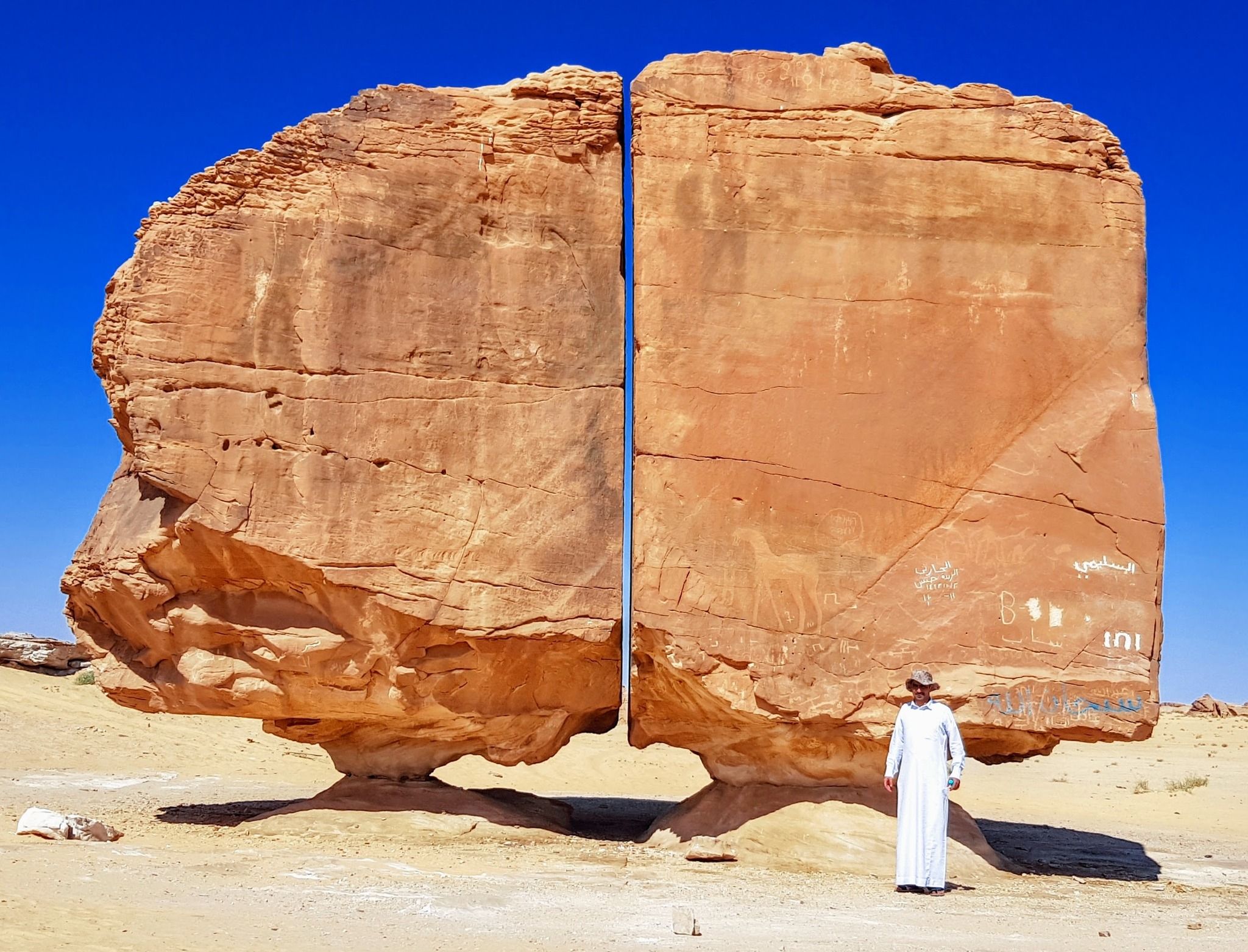
What Caused The Al Naslaa Rock Formation To Split In Two?
 he Al Naslaa Rock Formation is a great example of how nature is a serious force to be reckoned with, being a giant, solid boulder that looks as though it was split down the middle with the aid of an alien’s laser weapon. Far from a story about extraterrestrial antics (as cool as that explanation would be), the Al Naslaa Rock Formation is actually thought to be forged from completely earthly origins.
he Al Naslaa Rock Formation is a great example of how nature is a serious force to be reckoned with, being a giant, solid boulder that looks as though it was split down the middle with the aid of an alien’s laser weapon. Far from a story about extraterrestrial antics (as cool as that explanation would be), the Al Naslaa Rock Formation is actually thought to be forged from completely earthly origins.
The 6-meter (20-foot) high rocks sit upon two natural pedestals that make them appear as if they are almost levitating in perfect balance with one another as they don’t lean into their small divide and touch. It’s hard to imagine the Al Naslaa Rock Formation came about by accident, but most scientific theories to explain its existence center around the natural weathering process being responsible for its perplexing formation.
The Al Naslaa Rock Formation petroglyph
Found in the Tayma Oasis, Saudi Arabia, the Al Naslaa Rock Formation is a petroglyph, arguably one of the most photogenic in the world. Petroglyphs are images made by carving or engraving the surface of a rock (as opposed to pictographs, painted onto rocks).
Depictions of Arabian horses, ibexes, and humans can be seen on the Al Naslaa Rock Formation’s surface. Exactly when the carvings were committed to the stone isn’t known, but the sandstone rocks are believed to date back thousands of years.
How did the Al Naslaa Rock Formation form?
There are several theories surrounding the Al Naslaa Rock Formation’s perfect split down the middle. One is that the rock sits on a fault line and that the split was first created as the ground beneath the rocks shifted causing it to split in half at a weak point.
The crack created by this activity could then have become something of a wind tunnel for sand-laden gusts sweeping across the landscapes. As the grains passed through the gap over thousands of years, it may have effectively sanded down the uneven crack to create a perfectly smooth surface.
It could also be that the crack is a joint, which in geology means when a break naturally forms in a rock without displacement. The fracture divides the rocks and can often be unusually straight, like that seen in the Al Naslaa Rock Formation.
Another theory is that freeze-thaw weathering may have caused the crack when in ancient times water got into a small crack in the then-connected sandstone rocks. This water may then have frozen causing it to expand and exaggerate the crack.
Once the cool period came to an end, the divisive ice would have thawed and melted, leaving behind a perfectly straight gap dividing the sandstone rocks.
As for the pedestals the divided rocks sit on, these are actually quite common in desert landscapes where they’re also sometimes called mushroom rocks owing to their shape. They’re usually the result of weathering, either from winds that are faster lower to the ground so wear down the rock faster here, or glacial action in which a rock travels to balance atop another as the result of slow glacial movement.
Could humans have created the Al Naslaa Rock Formation?
Being sandstone, the Al Naslaa Rock Formation isn’t terribly strong, which makes it a candidate for weathering but also for human interference. Simple metal tools would’ve been capable of shearing the rock down the center, but what could possess a human to take on the arduous task of chopping a rock in half?
It’s possible ancient civilizations may have created the peculiar rock sculpture as a geographical landmark, site of religious significance, or an early example of art. The petroglyphs on its surface serve as a reminder that not everything we do as humans serves a purpose beyond expression.
Where can I find the Al Naslaa Rock Formation?
If you’d like to have a punt at solving the mystery of the Al Naslaa Rock Formation once and for all, you can find this site of natural wonder in the Tayma Oasis in Saudi Arabia, not far from the Al Knanafah Wildlife Sanctuary.
Oh, and if you do work it out, do us a favor and let us know, yeah?
An earlier version of this article was published in March 2022.
Recommended Videos
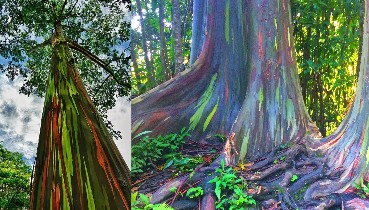 Rainbow eucalyptus: the stunning, colorful tree that looks like art32544 views
Rainbow eucalyptus: the stunning, colorful tree that looks like art32544 views 135 Interesting Facts And Pics That Prove That Nature Is Weird220 views
135 Interesting Facts And Pics That Prove That Nature Is Weird220 views-
Advertisements
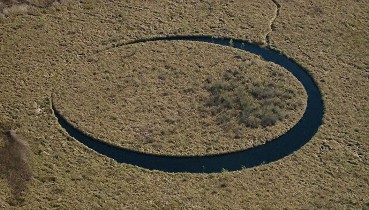 The Eye: A Strange And Unnaturally Round Island That Moves208 views
The Eye: A Strange And Unnaturally Round Island That Moves208 views 28 Year Old Russian Woman Shows Off Her Ankle-Length Hair That She Has Been Growing For 23 Years321 views
28 Year Old Russian Woman Shows Off Her Ankle-Length Hair That She Has Been Growing For 23 Years321 views Creative Ideas For Spring Photography71 views
Creative Ideas For Spring Photography71 views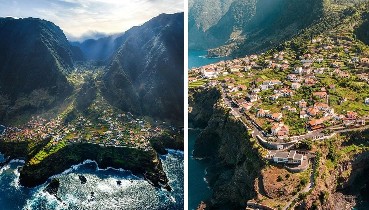 The Town of Seixal Created by Volcano154 views
The Town of Seixal Created by Volcano154 views 10 ugly and inappropriate wedding dresses. What were they thinking?1177 views
10 ugly and inappropriate wedding dresses. What were they thinking?1177 views Woman leaves back door open during sto.rm, only to find three deer seeking shelter inside35 views
Woman leaves back door open during sto.rm, only to find three deer seeking shelter inside35 views
You may also like
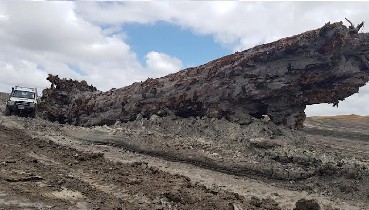 Ancient Tree Contains Record of Earth’s Magnetic Field Reversal in Its Rings
Ancient Tree Contains Record of Earth’s Magnetic Field Reversal in Its Rings  Unveiling Vietnam’s Astonishing Rare Red-Shell, Orange-Pulp Jackfruit That Amazes the Community
Unveiling Vietnam’s Astonishing Rare Red-Shell, Orange-Pulp Jackfruit That Amazes the Community  The lilac-breasted roller (Coracias caudatus) is an African bird of the roller family
The lilac-breasted roller (Coracias caudatus) is an African bird of the roller family  Photographer Captures Incredible Shots Of Osprey in Mid-Hunt Dive
Photographer Captures Incredible Shots Of Osprey in Mid-Hunt Dive
